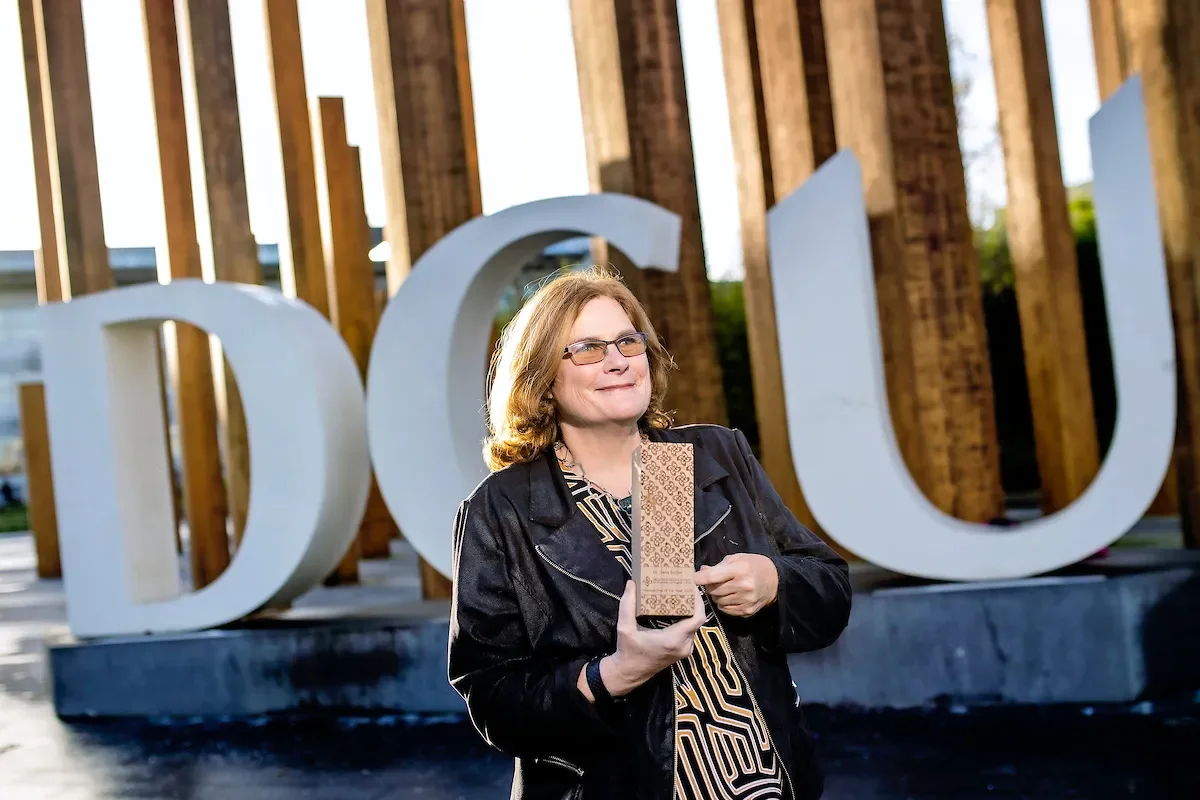

Dr Jane Suiter awarded the Irish Research Council Researcher of the Year
Dr Jane Suiter, Dublin City University (DCU) has been awarded the 2020 Irish Research Council Researcher of the Year award for her research on the public sphere and the information environment in referendums and elections.
Her research includes analysing populist messaging and the political communication characteristics and systems that support or hinder it, as well as the impacts of citizen’s participation and deliberation and the role of citizens in renewing democracy.
Dr Suiter is an Associate Professor at the School of Communications and Director of the Institute for Future Media and Journalism at DCU. She is a senior research fellow on the Irish Citizens’ Assembly and is recognised as a national and international leader in citizen engagement and deliberation.
The annual Researcher of the Year awards, recognise the very best of the Council’s awardees and alumni working in academia, industry, civic society and the public sector.
The Researcher of the Year category, recognises a current or former Council awardee, who is working in research in an academic institution and who has made an exceptional contribution to research in their field.
Director of the Irish Research Council, Peter Brown congratulated this year’s winners,
“Our annual Researcher of the Year awards are about recognising the very best and brightest of the Council’s current and former awardees. The standard this year was exceedingly high, and the judging panel found it difficult in many cases to choose a winner, which is a testament to the high calibre of researchers we have here in Ireland.
“We launched our five-year strategic plan this year and supporting excellent ideas and talent across all disciplines is at the heart of the Council’s mandate. Having a vibrant research community, and fostering public support for research is vital, as we continue to see the positive impact it has on society, the environment, and the economy. This is particularly true in the case of our three winners this year, who have all individually made an impact on society through their research.
“We are very proud of all of our awardees and I look forward to seeing what comes next for them.”
The standard of entries this year was so high, that the judges made two commendations in this category. They were to Professor John Goold, Trinity College Dublin and Professor Orla Muldoon, University Limerick.
Professor John Goold is an Assistant Professor and Royal Society University Research Fellow at the School of Physics, Trinity College Dublin. He is a theoretical physicist, focusing on the interface between quantum mechanics and far from equilibrium thermodynamics. Thermodynamics describes how energy is interchanged in physics. It can be used to understand how familiar objects such as engines and refrigerators work, but John’s work focuses on how the laws of thermodynamics emerge in the microscopic domain of quantum mechanics. The formulation of this theory will help develop an understanding of how heat is
managed and controlled in future quantum technologies.
Prof Orla Muldoon is the Founding Professor of Psychology at the University of Limerick. Her research is centred around a paradigm shift in understanding the social, psychological and physiological cost of stress, trauma and adversity; and offers explanations for how and why some people are damaged by stress, whilst others are resilient.Prof. Muldoon’s research contributions share a key feature: they prioritise the importance of collective identities and shared social relationships to understanding the impact of stresses such as brain injury, domestic and political violence and latterly the impact of the COVID19 crisis on health.Her most recent work highlights the potential for stress and trauma to revitalise social connections with consequent impact on clinical and biometric markers of stress. A European Research Council Advanced Grant received this year will allow her to take her work forward to check if in fact there is any truth in the idea that ‘what doesn’t kill us makes us stronger’.
